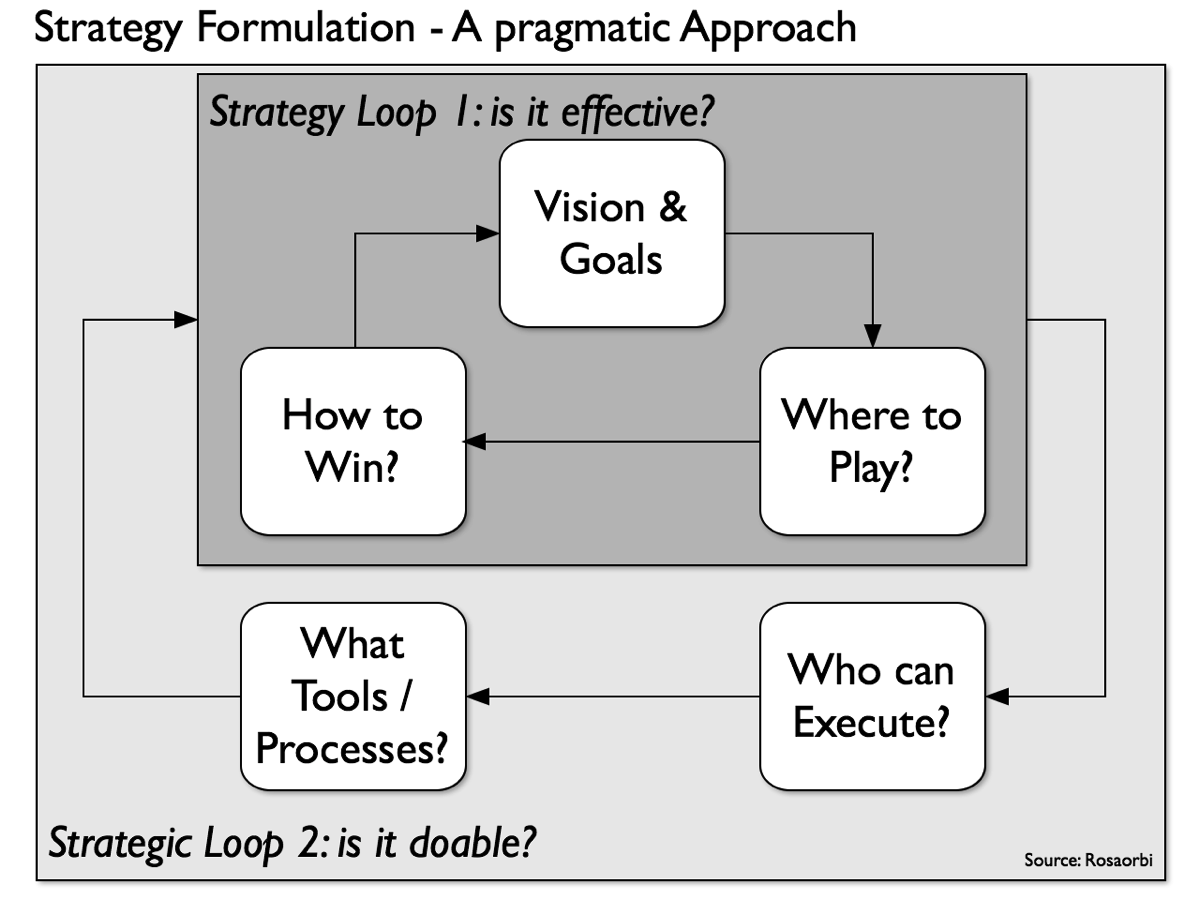Advising for Results

Supporting the leader
Very simply, a CEO or GM is in command of their company or business unit. As such, they set and communicate the vision and objectives for the organisation – internally and externally, He or she choses the leadership team who will implement the strategy and stewards a process that prioritises which initiatives the organisation should pursue to reach its goals and constantly monitors whether the team is on track. The leader is also ultimately responsible for making sure that there is always enough cash in the bank but not more than needed.
The CEO or GM is 100% in charge, never the advisor or consultant. The latter can add immense value to the organisational leader through any of the following:
- Assist with the “What”
- design and embed a way of looking at the world and making decisions that are suited to the organisation and its strategy
- deliver insights on specific strategic questions regarding competitive advantage, market evolution, discontinuities and new opportunities
- evaluate if the organisation is capable and willing to execute the strategy
- support the communication of the strategy
- being available as a sparing partner for the leader and his executive team
- Assist with the “Who”
- support the leader in assembling the right team (in capabilities, motivations and values)
- co-design an optimised operating model
- Assisting with the “How”
- develop tools and processes to enable the organisation to operate effectively and efficiently
- run change support programs
- train the teams
- set up KPI and incentive systems, …
At Rosaorbi, we specialise on the “What”, with a particular emphasis on the design and embedding of a strategic way of looking at the world to identify opportunities, which could be in blue oceans, disruptive or enhancing strategic market positions. We will also assist the CEO in determining if the organisation is capable and willing to execute the strategy. Our preference is to work with the team to mobilise the resources of the organisation in gathering the necessary intelligence, but in some cases, external intelligence gathering may be required and we would advise the team on the best options. We can also support the team in communicating the strategy through identifying the key elements of impact for stakeholders and customers and support corporate plan development.
A simple Strategy development framework
We believe strategy formulation is best conducted as an iterative process, in which the leadership team progressively gains deep insight and conviction regarding the best way forward.
The following diagram, illustrates the process, which we would tailor and embed in the client’s organisation.

Key questions we have successfully answered with past clients
I support decision making and deliver results through answering questions such as these.
- What is the most effective design for a new policy?
- What business model should the organisation pursue?
- On which customers should we focus our products and marketing for maximum profit and/or growth?
- How can we design the organisation/system to deliver our strategy?
- How should we track progress against our objectives?
- Is the organisation on track to meets its objectives? If not why?
- How can we reduce wasted resources and time?
- What is our transition or implementation plan?
- What is a fair contract that will meet both parties’ objectives?
- How do we resolve conflict?
- How do we prepare for a difficult negotiation?
- How can we discover and reach win-win outcomes?